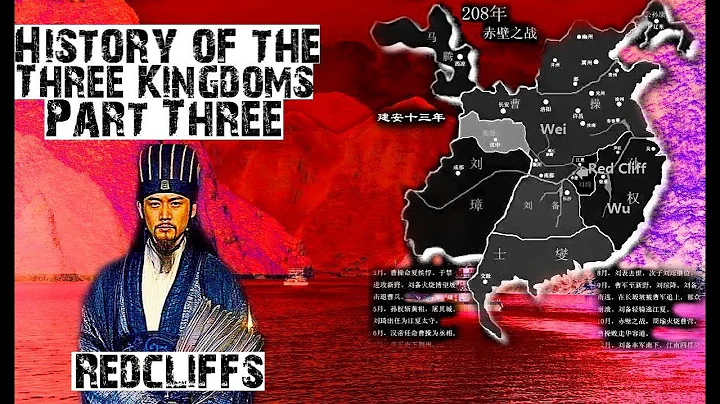Among the well-known historical figures in China, few have won unanimous praise. Perhaps Zhuge Liang in the Three Kingdoms period is a rare one. His wisdom stories such as "Qiang Borrowing the East Wind", "Three Qi Zhou Yu", "Seven Captures of Meng Huo" and other wisdom stories have been passed down from generation to generation, and are well-known.
was the period when there were many schools in Chinese history. No matter in the mind of any school, Zhuge Liang was also praised as the incarnation of wisdom.

"Army" seems to have become his special pronoun. When people describe someone with superior wisdom, they are often referred to as Zhuge Liang; if they are a military teacher, they are often thought of as Zhuge Liang.
Zhuge Liang is indeed a real historical figure, born and died from 181 to 234 AD. His name is Kongming, and he is called Wolong, the prime minister of the Shu Han Dynasty during the Three Kingdoms period.
In his early years, Zhuge Liang followed his uncle Zhuge Xuan to Jingzhou. After his uncle died, he lived in seclusion in Longzhong. Later, Liu Bei visited the thatched cottage for three times and asked him to help out. In the first year of the Shu Zhangwu (221 years), Liu Bei established the Shu Han regime in Chengdu, and Zhuge Liang became the prime minister. After the lord Liu Chan succeeded to the throne, Zhuge Liang was named a Marquis of Wuxiang and led Yizhou as herdsman. He was diligent and cautious all his life, and he worked hard. Shu Jianxing twelve years, died at the age of 54 in Wuzhangyuan during the battle. Liu Chan later named him Zhongwuhou.
Later generations often honor Zhuge Liang with "武侯" , appraising him as an outstanding statesman, military strategist, writer, calligrapher, and inventor.
Zhuge Liang is knowledgeable, proficient in the art of war, good at strategy, good at managing the army, and often cleverly arranged to win. These are all facts beyond doubt. But he is not a "god man", nor has he reached the level of omnipotence passed down from generation to generation.
Zhuge Liang, as people know today, is an image gradually deified by posterity.
And deifying Zhuge Liang is not without a price, the biggest innocent victim is Zhou Yu.
Zhuge Liang served his country because of his loyalty. The royals and dignitaries of all dynasties respected him and kept him perfect. Make it a role model for future generations.
"The Romance of the Three Kingdoms" draws on the historical trend to shape Zhuge Liang with many fictional events, and has achieved great literary success. As a result, since ancient times, many people have invisibly regarded the "Three Kingdoms" novel as true history, and Zhuge Liang has almost become a god and an idealized symbol of wisdom in people's minds.
Some people even analyzed and speculated that Luo Guanzhong, the author of "The Romance of the Three Kingdoms," once served as a military adviser for Zhang Shicheng, the leader of the rebel army at the end of the Yuan Dynasty. Luo Guanzhong used his novel to write Zhuge Liang to beautify himself.
When portraying characters in the book, The Romance of the Three Kingdoms uses the technique of "set off", depreciating one and raising the other, writing about military commanders confronting each other, as well as writing military officials.
In the book, Zhou Yu has been repeatedly defeated by Zhuge Liang. Not only has he become a "narrow-minded" despicable man, but he is also often self-defeating in strategy and wisdom.

The real Zhou Yu in history is not like this. He was 6 years older than Zhuge Liang, and when he became famous, Zhuge Liang was still unknown. He was the first contributor to the Battle of Chibi, and Sun Quan's masterpiece by the straw boat borrowed arrow. As for Zhou Yu's death by Zhuge Liang, it is pure fiction.
But these historical facts are true, and they really can't match the vivid description of the novel of "The Romance of the Three Kingdoms". If anyone tells the folks that "Zhou Yu is stronger than Zhuge Liang, he was not killed by Zhuge Liang," surely few people would believe it, and it would be regarded as distorting history.
In fact, before the "Three Kingdoms" novel was written, Zhuge Liang had been highly praised by the subsequent dynasties before the legend of Zhuge Liang was mythical.
In the Jin Dynasty, which was close to the period of Zhuge Liang's activities, at that time the ruler once canonized the former enemy prime minister, and many Jin Dynasty celebrities also praised Zhuge Liang in high profile. In the Sui and Tang dynasties, the well-known poet Du Fu also wrote the famous poem "Death before the master, and the hero will burst into tears" to express his admiration for the prime minister of Shu. Wang Tong, Du Huangshang, Wang Bo, Du Mu, etc. also all respect Zhuge Liang.
Chen Shou wrote ""Three Kingdoms" was in the Western Jin Dynasty, which is relatively close to the time of Cao Wei. Chen Shou's position in "Three Kingdoms" is to regard the Wei and Jin as orthodox, while Sun Wu and Shu Han are regarded as the goods that split the world. Therefore, in his description of Zhou Yu and Zhuge Liang, the standard has no priority, and there is no deliberate praise or criticism.
After the Western Jin Dynasty, to the Eastern Jin Dynasty, there have been subtle changes in the evaluation of politicians in the Three Kingdoms period. Because the Eastern Jin Dynasty was inherited from the Western Jin Dynasty, the notion that Wei Jin was orthodox could not be changed. At the same time, the Eastern Jin Dynasty itself is like Sun Wu at this moment, in a corner. The "Sun Liu united against Cao" had practical significance. Therefore, since the Eastern Jin Dynasty, double standards began to appear in the historical evaluation of the characters of the Three Kingdoms. Some fictional plots later shown in the novels of "The Romance of the Three Kingdoms" also began to show up during this period. This state continued throughout the Northern and Southern Dynasties.
In the Tang Dynasty, the topic of who is orthodox in the "Three Kingdoms" is irrelevant. People in the Tang Dynasty paid more attention to historical facts. Du Fu admired Zhuge Liang very much. It is said that he respected Zhuge Liang's feelings about the country and the people. The opposite of Du Fu is the poet Li Bai, who praised Zhou Yu vigorously. Li Bai wrote in his poem: " Two dragons fight each other, the Chibi Tower sweeps the ground. The fire Zhang Tianzhao cloud sea, Zhou Yu breaks Cao Gong here." ("Chibi Song Farewell")
From history Look, in the historical records before the Tang Dynasty, Zhuge Liang had basically nothing to do with the Chibi War. Regardless of the actual situation of the Chibi War, it was Zhou Yu who made the greatest contribution.
Regarding the Battle of Chibi, Song Dynasty poet Su Dongpo's "Nian Nujiao·Chibi Nostalgia" was passed down through the ages. Based on this, many people believe that the "Lufan Lun towel" in the poem refers to Zhuge Kongming's commanding demeanor and demeanor. In fact, this kind of praise is Zhang Guan and Li Dai, who transferred the merits of Zhou Yu to Zhuge Liang. To be precise, what Su Shi praised in his poem was not Zhuge Liang, but "Three Kingdoms Zhou Lang Chibi".

In the Romance of the Three Kingdoms, in order to deify Zhuge Liang, Zhou Yu is almost everywhere derogatory, Zhou Yu has become the biggest victim of Zhuge Liang's perfect image. The most ruthless thing is that the author invented the plot of Zhou Yu being killed by Zhuge Liang in three angers. Borrowing Zhou Yu's own mouth, he said the famous six-character exclamation: "Since Yu Sheng, how can Sheng Liang?"
As a classical masterpiece, the writing level of "The Romance of the Three Kingdoms" is first-rate, and the artistic level is even better, but the storyline and historical facts are quite different. But it is not a history book. As a literary creation, there is nothing wrong with it.
Unexpectedly, the stories narrated in the novel have been regarded as historical facts by countless people, and the effect of being fake and real has appeared.
In the well-known "Three Kingdoms" "Chibi War" story, Zhuge Liang is a sophisticated strategy master, and Zhou Yu is a young and energetic young captain. In fact, Zhuge Liang was a fledgling "angry youth", and Zhou Yu was not only older than Zhuge Liang, but also 6 years older than Zhuge Liang.
In 208 AD when the Chibi War took place, Zhuge Liang was 27 years old and Zhou Yu was 33 years old. At this time, Zhuge Liang had just been invited by Liu Bei for his "three visits to the thatched cottage" for about a year. There was no military masterpiece that attracted the attention of the world, and Zhou Yu had been the military commander of the Soochow for nearly ten years.
The book "The Romance of the Three Kingdoms" describes that during the Chibi War, Zhuge Liang put forward the strategic proposition of "uniting Wu and resisting Cao". He talked about the current situation and fought against the Confucian scholars. He even angered Zhou Yu as "incompatible with Cao." It shows that "linking Wu to resist Cao" is all Zhuge Liang's strategic vision, and fighting the Chibi War is the first step in this strategic plan.
And in historical facts, as early as seven years before the Chibi War, Lu Su, a famous official of the Eastern Wu, proposed to Sun Quan the strategic proposition of "three parts of the world, unite Liu against Cao". It can be seen that Zhuge Liang might borrow from Liu Bei's "Longzhong Pairs". But there are still differences. Lu Su's "Liu" refers to Jingzhou Liu Biao, and Zhuge Liang's "Liu" refers to Liu Bei.
As a famous military commander in the Eastern Wu, Zhou Yu has always trusted and supported Lu Su's opinions. There is no problem of being agitated by Zhuge Liang and hating Cao.
Huang Gai’s bitter tricks and Zhou Yu’s miscalculations described in this story in "The Romance of the Three Kingdoms" were pissed to death, lamenting "Since Sheng Yu, He Shengliang", the burning ship, the location of the Battle of Chibi, etc.Festival, mostly inconsistent with historical facts.
such as "Fire Bowangpo" in the novel, it is explained that Zhuge Liang planned the first battle after his fledgling in The Romance of the Three Kingdoms. The command of this battle in history is Liu Bei. Liu Bei, Xiahou Dun, and Yu Jin set up an ambush to flee in Bowangpo and set up a victory. Zhuge Liang of this period should still be engaged in farming in Longzhong.
The story of "Grass Boat Borrowing Arrows" is widely spread, but it has nothing to do with Zhuge Liang. This incident is a masterpiece of Sun Quan. Sun Quan led a wooden boat to spy on Cao Junyingzhai. After Cao Jun found out, he sent a thousand arrows. There were too many arrows shot on one side of the wooden boat, causing the hull to be too heavy. Sun Quan ordered the boat to turn around and let the other side receive the arrow. After the two sides of the ship were balanced, Sun Quan and others sailed away.
It can also be seen that these classic historical stories were not created out of thin air by the author of "Three Kingdoms", Luo Guanzhong, but facts do exist, but they were arbitrarily processed by him.
In historical records, Zhou Yu was "exclusive of sexuality" and "real genius". Sun Quan praised Zhou Yu for being "the capital of Wang Zuo", and Fan Cheng was praised as "the hero of the world, the romantic and beautiful husband of Jiangzuo" . There is no description of being pissed off. Prove that he is a broad-minded general.
There are also historical records that the so-called Zhuge Liang burned the warship because the northern soldiers of the Wei Kingdom were not satisfied with the water and soil in the south. They were generally sick and morale declined. Cao Cao burned the warship and left the battlefield.
Needless to say, "The Romance of the Three Kingdoms", as a historical novel, does have a large number of literary descriptions that are out of historical facts, especially in the comparative description of Zhuge Liang and Zhou Yu. The purpose is undoubtedly to uphold Zhuge Liang and depreciate Zhou Yu, making Zhou Yu a stepping stone and victim in the process of Zhuge Liang's deification.
After the fall of the Han Dynasty, there has been endless debate about who is orthodox. The different identifications of orthodoxy led to a change in the evaluation of historical figures in the Three Kingdoms period. This is the origin of Zhuge Liang's later deification.
In the Three Kingdoms period, there was a dispute over the status of orthodoxy. Either Cao Wei or Liu Shu, Sun Wu had no share. After the troubled times of the Tang Dynasty, the Southern Song Dynasty became a true orthodox regime of the Han people. Zhuge Liang immediately became a model to be followed, Cao Cao also became a traitor, and Zhou Yu became an insignificant foil.
Therefore, after the Southern Song Dynasty, the status of Zhuge Liang and Zhou Yu has undergone a radical change, whether it is historical or literary works. The purpose is to establish Zhuge Liang as a model of "recovering the Han room". A large number of Zhuge Liang's deification actions also appeared after that.
Someone analyzed that the reason why Zhuge Liang was further mythological by Luo Guanzhong, a novelist at the end of Yuan Dynasty and early Ming Dynasty, was mainly because Zhuge Liang was an image of wisdom that literati wanted to achieve since ancient times, and Luo Guanzhong used his pen and ink to complete the ideal of the world.
In the year 223 AD, the Lord of Shu, Liu Bei, was on his deathbed, tearing his son Liu Chan to solitary and Zhuge Liang, and even said: The talent of the king is ten times that of Cao Pi. You must help me fulfill my last wish to rejuvenate the Han Dynasty. You have to assist Liu Chan, but if you are not talented, you can choose the right person by yourself...

Liu Bei Baidicheng's remarks about the solitude have the same effect as he had thrown a child in front of Zhao Yun, but this time the object is Zhuge Liang. It also made Zhuge Liang tears like rain, and hurriedly said: The minister will do his best to be loyal to the festival and die.
is precisely the trust and promise between the emperor and his subjects, which made Zhuge Liang go to Qishan's Northern Expedition again and again later, knowing that his chances of winning were not great, he still attacked Cao Wei. On the last expedition, Zhuge Liang wrote the famous "List of Disbursements" with his pen, leaving the well-known line eulogized through the ages, "You will die, and you will die."
Sincerely thank you all for reading "Palm Heart Spring and Autumn", if you like it , Click the prompt "Subscribe" or "Follow" in the upper right corner of the column. Together we appreciate historical anecdotes and recall historical past events... (Statement: The pictures in the text are all from the Internet)
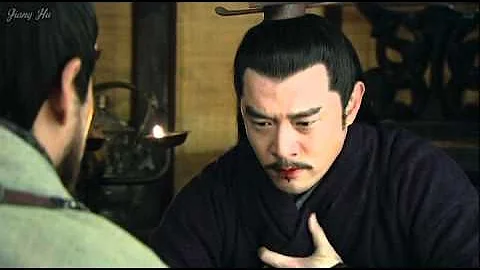

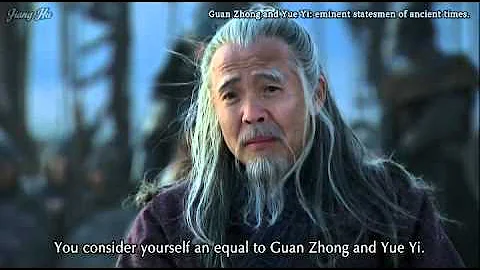

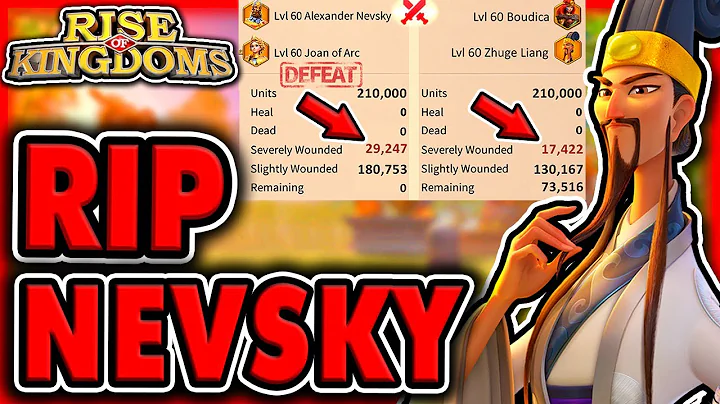
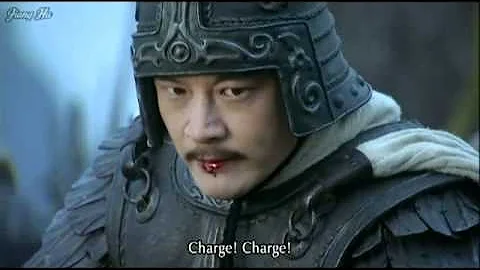
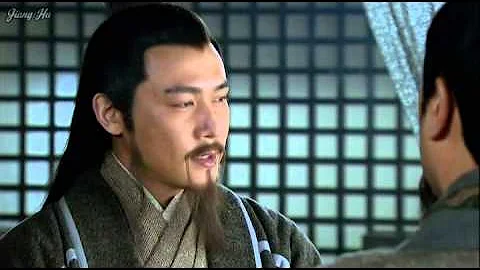
![Three Kingdoms 2010 MV7 [Zhuge Liang - Zhao Yun - Zhou Yu - Sun Quan] / 三国 2010 亮云瑜权 - DayDayNews](https://i.ytimg.com/vi/pCdxGTeZmmw/hqdefault.jpg?sqp=-oaymwEcCOADEI4CSFXyq4qpAw4IARUAAIhCGAFwAcABBg==&rs=AOn4CLDd514qUb-rsLaNdYUCBEPg00_vJQ)


